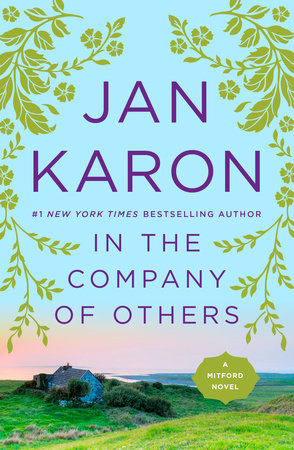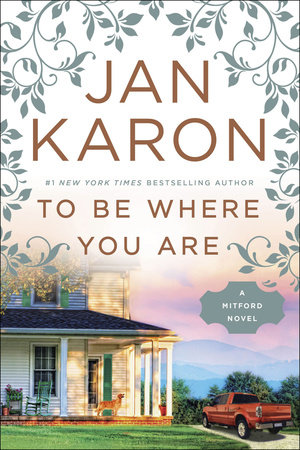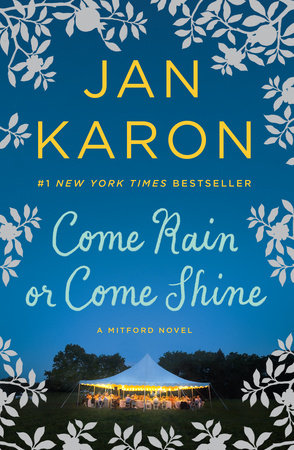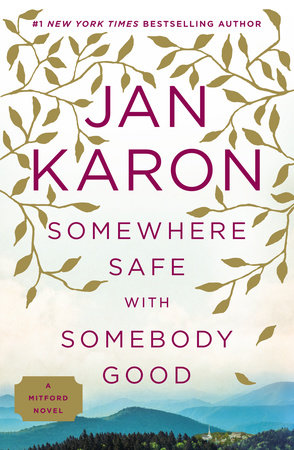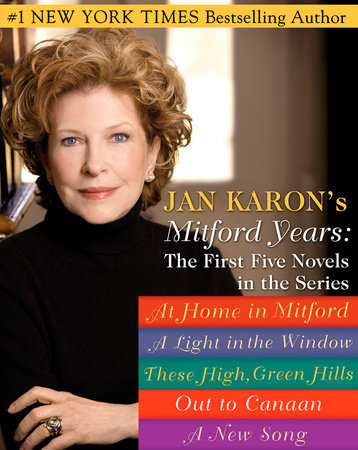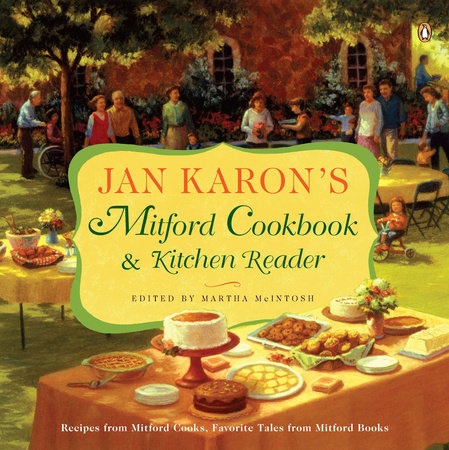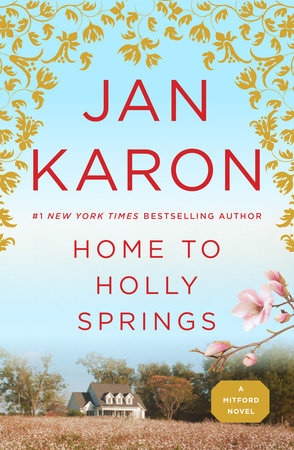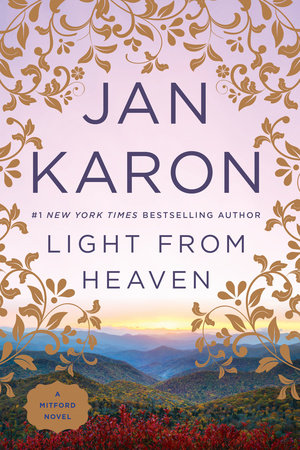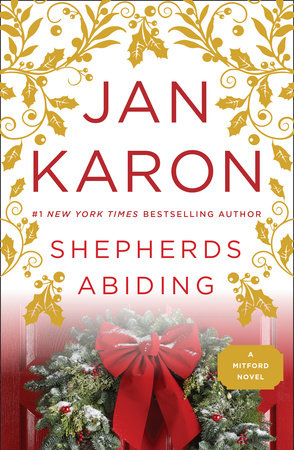Excerpt
In the Company of Others
ONEThe beams of their hired car scarcely penetrated a summer twilight grown dark as pitch in the downpour.
His wife's fear of being hemmed in was only slightly greater than his own. As the road narrowed to a lane the width of a sheep track, he took Cynthia's hand and peered out to sullen hedges pressing on either side. He was peevish at being crammed into a rain-hammered Volvo with a testy driver and a box of books which for some bizarre reason they had thought they couldn't live without.
He closed his eyes, then thought it best to keep them open. He was a lousy traveler. Indeed, the aggravation of getting from Atlanta to Dublin had exceeded his worst expectations.
Following a delay of seven hours due to storms in the Atlanta area, the trip across the Pond had been an unnerving piece of business which shortened his temper and swelled his feet to ridiculous proportions. Then, onto a commuter flight to Sligo Airport at Strandhill, where—and this was the final straw, or so he hoped—they met the antiquated vehicle that would take them to the lodge on Lough Arrow. When he located an online Sligo car service a month back and figured how to dial the country code, hadn't he plainly said this trip would celebrate his wife's birthday as well as her first time in Ireland? Hadn't he specified a nice car?
In any case, they'd be getting no consolation from the driver, a small, wiry fellow so hunkered over the wheel that little more was visible than his headgear—a mashed and hapless affair of uncertain purpose, possibly a hat.
He had visited County Sligo as a bachelor ten years ago, with his attorney cousin, Walter, and Walter's wife, Katherine; they had driven to and from the fishing lodge on this same road. In any weather, it was no place to meet oncoming vehicles.
He unbuckled the seat belt and leaned forward.
'Aengus, I think we should pull off.'
'What's that?'
'I think we should pull off,' he shouted above the din of rain and wipers.
'No place to pull off.'
'Ask him how he can possibly see anything,' said Cynthia.
'How can you possibly…?'
'I see th' wall on m' left an' keep to it.'
'Doesn't appear to be any cars coming, why don't we stop and wait it out?' Torrential. Second only to the hurricane he'd driven through in Whitecap.
'I'll get round th' bend there an' see what's ahead.' Aengus muttered, shook his head. 'Bleedin' rain, an' fog t' bleedin' boot.'
'It's what keeps you green,' shouted his wife, opting for the upbeat.
'That's what they all say. M'self, I'm after goin' on holiday to Ibiza.'
He sat back and tried to stuff his right foot into the shoe he'd removed on entering the car.
'Timothy,' said his wife, 'if there's no place to pull off, what happens when people meet another vehicle?'
'Someone has to back up. I never quite understood how that gets decided. Anyway, there'll be a pull-off along here somewhere; they seem to appear at very providential places.'
'When he said he keeps to the wall, I realized those aren't hedges. There's stone under all those vines.'
He thought she looked mildly accusing, as if he'd neglected to pass along this wisdom.
'Walls!' reiterated Aengus. 'Landlord walls.'
He had promised her this trip for years, and for one reason or another, it had been often deferred, twice rescheduled, and even now there was a glitch. Last week, Walter and Katherine had been forced to postpone tomorrow's planned arrival in Sligo until four days hence. Walter's apologies were profuse; after months of red tape and head scratching, he said, the date for meeting with a big client had come out of the blue. His cousin hated the inconvenience it would cause; after all, Katherine was the only one among them with guts to drive the Irish roadways. She was a regular Stirling Moss—fearless, focused, fast. Too fast, the cousins had long agreed, but what could they do? They were both cowards, unfit for the job.
Until Walter and Katherine arrived at the lodge with wheels, he and Cynthia would be stuck like moss on a log. 'How will you manage?' Walter had asked.
'Very well, indeed,' he said. In truth, Walter and Katherine's delay was the best of news. He and Cynthia were badly in need of four uneventful days, having been thrashed by the affairs of recent months.
Soon after she fractured her ankle and lapsed, unwilling, into what she called her Long and Unlovely Confinement, he learned he had a half-brother in Mississippi. There had been a few shocks in his seventy years, most of them occurring during forty-plus years as a priest, but never anything like this.
As a kid, he'd once pulled that nearly impossible stunt of St. Paul's and prayed without ceasing—for a brother. It didn't work. Then, sixty years later, there was Henry Winchester. Henry, with acute myelogenous leukemia, needing stem cells from a close relative.
He had quartered in Memphis with Cynthia for weeks, giving over his stem cells through apheresis, standing watch at Henry's bedside and feeling in an odd and confusing way that he was fighting for his own life. His long road trip in a vintage Mustang hadn't helped, of course. Then, playing out the proverb of 'when it rains it pours,' came the sudden flare-up of his diabetes only days ago.
'There's no way we're not going,' he told his wife, whose recent sixty-fourth birthday had gone largely uncelebrated.
'There's no way we're not going,' he told his doctor, who had seen him through two diabetic comas and was as hidebound as they come. Hoppy Harper had preached him the lipids sermon followed by the exercise sermon, pulled a stern face to ram the points home, then caved. 'So, go,' he said, popping a jelly bean.
Four days. To walk the shores of Lough Arrow. To row to an island in the middle of the lake and picnic with Cynthia. To sit and stare—gaping, if need be—at nothing or everything.
It would be roughly in the spirit of their honeymoon by the lake in Maine, where their grandest amenity was a kerosene lamp. It had rained then, too. He remembered the sound of it on the tin roof of the camp, and the first sight of her in the white nightgown, her hair damp from the shower, and her eyes lit by an inner fire that was at once deeply familiar and strangely new. He hadn't really known until then why he'd never before loved profoundly.
Cynthia nudged him with her elbow. 'We're around the bend.'
He leaned forward and shouted, 'We're around the bend. You were going to stop.'
'There's nothin' so bad it couldn't be worse—another bend comin' up.'
He sank back in the seat. 'That's the way of bends. They keep coming up.'
'What am I t' call you?' shouted Aengus. 'Are ye th' father or th' rev'rend?'
'Reverend,' he said. 'I'm the Father back home, but in your country only Catholic priests are addressed as Father.'
'Here for th' fishin', you an' th' missus?'
'No fishing.'
' 't is th' fishin' capital of th' west, you should have a go at it.'
'We could reach out and touch those walls,' she said. 'It looks like we're going to rip the side mirrors off their hinges.'
He made another feckless go at shoeing his right foot. 'Always looks that way.' His earlier foray here had earned him rights to play the old head. 'Never happens.'
Aengus gave him a shout. 'I've been thinkin', Rev'rend.'
'What's that?'
'There's seven or eight them Kav'na families in Easkey.'
'Good. Wonderful.'
She foraged in her handbag, which did double duty as mobile library and snack hamper. 'Here,' she said. 'Eat this. It's been four hours.'
Raisins. He ate a handful with a kind of simple shame, recalling chocolate with macadamias.
She leaned close, her breath warm in his ear. 'Do you think he does this for a living? He isn't wearing a uniform or anything.'
'Ask him,' he said. He was sick of yelling.
She unbuckled her seat belt and leaned forward to the hat. 'Mr. Malone, do you do this for a living?'
'What's that?'
'Drive tourists. Is it what you do… all the time?'
' 't is the only time. 't is m' brother's oul' clunker. I mow verges for th' Council at Sligo.'
She sat back and rebuckled. 'He mows verges,' she said, looking straight ahead. 'It's the only time he's done this.'
There was no point in pursuing that line of thought. 'The sides of the road where weeds grow,' he said, in case she didn't know from verges.
Rain drummed the roof. The fan in the dash spewed air smelling of aftershave. They moved at a crawl.
'Mother of God!' shouted Aengus.
The sudden slam of brakes jolted them forward. A blinding light… on top of them. His heart pounded into his throat.
Aengus flashed the Volvo's high beams, scraped the gears in reverse, and squinted into the rearview mirror.
'Bloody lorry,' he snapped. 'We'll be backin' up.'
TWO
The walls ended; the rain slackened; parting clouds liberated scraps of pale light. The hedges now were merely tumbled stones and August bloom twined with ivy, foxglove, scarlet creeper.
Aengus Malone had learned a certain dexterity on his mower; his skill at locating and backing into the previously overlooked pull-off had been brilliant. The lorry driver had given three blasts of his horn as a thumbs-up.
'That was some scrape you bailed us out of,' he said to Aengus. 'Well done.'
'It's m' lucky hat that done it.' Aengus reached up and patted the thing. 'Me oul' mum give it to me.'
'If it weren't so dark,' said Cynthia, 'we might see a rainbow.'
'There's some as see rainbows at night, but those would be fairies.'
'You believe in fairies?'
'Ah, no, not a bit. But they're there noneth'less.'
'You've never seen one, then?'
'If it's fairies ye're after, they're said to be very numerous in Mayo.'
On a slope in a grove of ancient beeches, the dusky, formless shape of the lodge appeared, its windows luminous against a starless night.
His wife drew in her breath.
Broughadoon.
'That would be candles burnin',' said Aengus. The Volvo rattled over a cattle grate. 'Looks like th' rain's shut down your power.'
'Stop,' said Cynthia. 'Please.'
Aengus braked; the motor idled.
'It's the most beautiful sight I've ever seen.'
She sat for a moment, bound in one of her spells, then opened the door. A pure and solemn air spilled in; his right foot slipped into his loafer.
She got out of the car and stood looking along the slope to the fishing lodge, at fog drifting among the cloistered beeches. 'Listen,' she said.
They listened.
'Nothin' much t' hear,' said Aengus.
Rain dripped from the shadowed trees, pattered on the roof of the car; a breeze stirred.
He watched as she got back in the car and closed the door and looked at him and smiled. Then she leaned to him and kissed him. Her faint scent of wisteria mingled with the Sligo air. He had never been so happy in his life.
As they drew up to the lodge, figures appeared on the stoop, silhouetted against the light from the open front door. Three barking dogs bounded onto the gravel and squared off with the Volvo.
There was a considerable shaking of hands with innkeepers Liam and Anna Conor, as the dogs ganged a-glee about their feet—two Labradors, and a Jack Russell dancing on its hind legs.
Anna, the striking-looking woman he'd known a decade earlier, gave him a hand-wringing that jimmied his teeth. He admired all over again her tousle of copper-colored hair and, without meaning to, blurted the sentiment aloud.
They were joined by a white-haired old man wearing a tie and cardigan and brandishing a walking stick. In the gabble of greetings, he decried their weather as 'foul and infernal.'
Somewhere, thanks be to God, something was cooking. 'Lamb,' he said to his wife. He could devour a table leg.
He recognized the feeling he experienced on his wedding day nearly eight years ago—as if he'd lost the proper sense of things and stepped outside his body. He was a cannonball fired directly from the quiet desperation of a hired car into a domestic muddle of energy and good cheer.
They were herded through an entrance hall, its walls fairly crammed with fish mounted in glass cases, and into a sitting room lit by candles and an open fire. A half-finished jigsaw puzzle was spread on a table among a loose aggregation of sofas and wing chairs.
He felt at once the keen pleasure of the room: its book-lined walls and good pictures, the impression of ease.
In a corner, three men murmured over a card game by the light of a candle. A distinguished-looking fellow sat reading a newspaper by the firelight and stroking his white mustache; upon seeing them, he stood at once and buttoned his jacket.
'Heads up, gentlemen…' Anna lifted a small bell from the sofa table and pealed it. 'Reverend Timothy Kav'na and Mrs. Kav'na of North Carolina, meet our anglers—Tom Snyder of Toronto, Hugh Finnegan of Maryland, and there's Pete O'Malley. Pete's a Dub who lived many years in Texas.'
'O'Malley here.' O'Malley stood, saluted. 'Welcome.' The other two pushed back their chairs, stood, raised a hand.
'They're with us every August since 1997,' said Anna. 'They're after catching our dinner tomorrow.'
He gave the trio a thumbs-up. 'Go, Terps,' he said to Hugh Finnegan.
'And there's Seamus Doyle from up the hill at Catharmore, who visits most evenings with the Labs. Seamus is our master of assorted entertainments, chiefly checkers and jigsaw puzzles.'
Seamus of the white mustache crossed to them for another round of hand-shaking. 'How long will you be in Ireland, Reverend?'
'A couple of weeks.'
'They say a couple of weeks makes a habit.'
'We wouldn't be against it. Not a bit.'
'I spent a lot of years in the States. Always good to see someone from the oul' country, as I call it.'
He surveyed the room and those in it—a whole universe of life and pluck at the end of a narrow road in the middle of nowhere.
Somehow, the two three-suiters, the umbrella, and the glasses case he'd left on the backseat got toted in by Liam. Then came Aengus, tailed by the two Labs, schlepping the carton of books, their carry-ons, a flashlight, and the box of raisins. Off they went across a sitting room carpet worn to the lining, and along a hall, where the lot of them vanished into the gloom. A young woman with a nose ring and cheek tattoo offered hot towels; the Jack Russell sat at his feet, looking up, a chewed shoe clenched in its jaws.
It was all a dazzle. After years of talking, planning, and idle speculation, they were here. He wanted to sprawl before the open fire like a lizard and lose consciousness.
Cynthia had stepped away to look at a painting he remembered—of men in curraghs spearing basking whales in the treacherous seas off Arranmore.
'It's good to have you back,' said Anna. There was an honest country style about her garb of shirt, skirt, apron, and clogs.
'It's great to be back. The trip is my wife's birthday present.'
' 't is no surprise your wife is beautiful.'
'Yes,' he said. 'Inside and out.' He wasn't likely to get over his pride in showing her off. That they were married at all still waked an astonishment in him. 'We're both needing a few days to unwind. There's no better place to do it than here.' The most excitement he could recall from his first visit was a wandering cow in the kitchen garden.
He wiped his hands with the towel and replaced it on the tray. 'Many thanks,' he said to the server, who cast a cool glance beyond his.
'We're so sorry about the power being out, but it happens often with the big rains.' Anna turned and spoke to Cynthia. 'I hope you don't greatly mind candle power, Mrs. Kav'na.'
Cynthia came to them and slid her arm in his. 'Not in the least. I love candle power.'
'Such dreadful weather, it's been raining for three weeks. I do apologize.'
'Please call me Cynthia, and you needn't apologize for anything at all. I love rain.'
The old man stumped up with his cane. 'A villainous rain!' he declared in a loud voice.
'Meet my father, William Donavan, he's our keeper of the fire at Broughadoon. The Kav'nas are from the States, Da. North Carolina.'
'Rev'rend, missus, good evenin' to you. We're destroyed by th' rain entirely.' William removed a handkerchief from his vest pocket and gave his nose a fierce blowing.
He reckoned William a handsome man, even with a once-broken nose that had been badly set. The rope of an old scar crossed his left temple.
'Now, now, Da, not entirely. But no one goes hungry,' she assured them, 'our Aga is fired by oil and there's a lovely rack of lamb roasting for your dinner.'
'I'm desperate with th' hunger,' said the old man.
'Our own lamb,' she said. 'We hope you'll approve. The dining room in thirty minutes, then, straight down the hall and to the right. Flashlights and chamber sticks on the book table.'
'Chamber stick,' said Cynthia, not knowing the term.
Anna laughed. 'Something to stick a candle in and light the way to your bedchamber. Oh, and when you're ready to retire, we'll bring buckets of hot water so you can have a wash.'
A good-looking woman brimful of energy, just as he remembered. Ten years ago, she appeared to run the place virtually single-handed. He didn't remember meeting William before, or Liam.
'And what may I get you in the meanwhile?' asked Anna. 'Whiskey? Glass of wine? Cup of tea?'
'A cup of tea,' said his wife. 'I'll just find the powder room first.'
'Ditto,' he said.
'Straight across there, next to the sheep painting. And behind the sofa there's the honesty bar and a box for outgoing mail.'
Aengus arrived at his elbow. Something looked very different about their driver, though he couldn't say what. A brown fellow, wrinkled as a dried apple.
'Bang-up, Aengus. Thank you.'
'Ah, well, we didn' get drownded, so.'
Owing to the criminal diminution of the dollar, this would be no mean gratuity; he dug into his pocket and pressed more than a few euros into Aengus's hand. He was in turn handed a business card troubled by age and a series of phone numbers crossed through in pencil.
'You'll have no vehicle a'tall 'til th' cousins come. Best give us a shout if there's need.'
'What if you're mowing?'
'We'll send a cousin of our own, we've thirty-odd, m' brother an' me.'
'Thank you, Mr. Malone,' said Cynthia. 'Be safe out there. Not too much backin' up, if you please.'
Aengus grinned, a sudden and remarkable sight, and hurried out.
'You first.' She nudged him toward the sheep painting.
'Ladies first.'
'What's that smell?'
'Turf. They're burning turf. Takes some getting used to.' He remembered how much he'd learned to like the pungent odor.
Liam bounded up. 'Everything is in your room, Reverend. I hope you'll be happy with us. Welcome again to Broughadoon.'
'Thank you, we're thrilled to be here.'
A lean, handsome Irish face, he thought, with intense blue eyes and hair graying at the temples. 'I don't believe we met when I visited a few years ago.'
'I was helping rebuild the west wing of the oul' place, and keepin' my head down. There's still work going on, I hope it won't disturb you. Anyway, you'll see more of me this trip, I'll be givin' a hand with dinner and cookin' your breakfast!'
'The full Irish breakfast I so fondly remember?'
'And skip the blood pudding, Anna says.'
'Correct. My wife, however, is eager for the blood pudding!'
Liam laughed. 'Is she Irish?'
'Her maternal double-great-grandmother was from Connemara, but we know nothing about her except she was very cheerful-looking and played the fife.'
'I expect you met the lorry coming in.'
'I'll say.'
'Sorry about that. It was my wine wholesaler, he was held up by the storm and finally had to run for it. By the way, the delay of your cousin and his wife opened up the room they requested. Always the silver lining.'
'Always,' he agreed. 'The books. I don't recall seeing so many books last time, or paintings.'
'My father's library passed to me years ago; we finally got the shelves built last spring.'
'Beautiful millwork on the shelves.'
'Thanks.'
'You did it?'
'My da was a builder, I grew up with a hammer an' saw. I wanted his books to have a good show. A few good pictures also passed to me, including a Barret you'll see in the dining room—it's a beauty in afternoon light. Anyway, books and pictures for me, and the house up the hill for my older brother, Paddy, thanks to God.'
'Thanks to God!' Sitting nearby with Seamus, William thumped his cane on the floor.
'Refresh my memory. What's the meaning of the name Broughadoon?'
'From the Irish, both an dún—hut of the fort.'
'This being the hut, and the fort being…?'
'Catharmore—on th' hill above.'
'So. It's a pleasure to see an open fire.'
'Ireland's gone modern, I'm afraid, though Anna and I try to keep some of the oul' ways. Speakin' of oul' ways, sorry about the power, 't is usually back on in no time.'
Through the open window, he glimpsed the taillights of the Volvo disappearing along the road. And there, on the antlers of a mounted deer head, hung Aengus's hat, as shapeless off as it had been on.
'Aengus Malone forgot his hat,' he told Liam. He felt oddly remorseful.
'So he did. We'll leave it just there 'til he comes again.'
They had no plans for Aengus to come again, as they'd be traveling with Stirling Moss in the future. 'A pity he left it,' he said, 'his old mum gave it to him.'
'Aengus Malone forgot his hat,' William announced to Seamus. 'Leave it just there 'til he comes again.'
Seamus was filling his pipe. 'Aye,' he said, looking up and smiling. 'Will do.'
On going in to dinner, he spied a large, well-thumbed book lying open on a table by the dining room door. Names lined the pages.
'Want to sign the guest book?' he asked Cynthia.
'I'll do it tomorrow; I'm famished.'
He couldn't resist. Squinting in the dusky light of the candle sconces, he picked up the pen and made the inscription.
Timothy A. Kavanagh, Mitford, North Carolina.
There. His Irish name in an Irish book, on the heels of an Irish rainstorm. It was official.


